Malaika Nakupenda Malaika is a Swahili song written by Tanzanian artist, Adam Salim in 1945 and recorded for the first time by Kenyan musician, Fadhili William. This song is possibly the most famous of all Swahili love songs in Tanzania, Kenya and the entire East Africa, as well as being one of the most widely known of all Swahili songs in the world. Malaika in this context means "angel" in Swahili, and this word has always been used by the Swahili speakers to refer to a beautiful girl.

"I'll Be Doggone" is a 1965 song recorded by the American soul singer Marvin Gaye and released on the Tamla label. The song talks about how a man tells his woman that he'll be "doggone" about simple things but if she did him wrong that he'd be "long gone". The song was written by Miracles members Smokey Robinson, Pete Moore and Marv Tarplin, initially for The Temptations, who rejected the song.
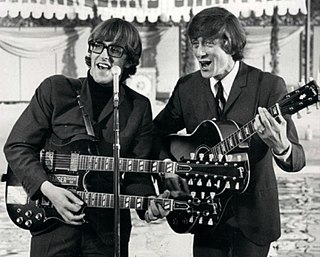
Chad & Jeremy were a British musical duo consisting of Chad Stuart and Jeremy Clyde, who began working in 1962 and had their first hit song in the UK with "Yesterday's Gone" (1963). That song became a hit in the United States in the following year as part of the British Invasion. Unlike the rock-music sounds of their peers, Chad & Jeremy performed in a soft, folk-inflected style characterized by hushed and whispered vocals. The duo had a string of hits in the United States, including "Willow Weep for Me", "Before and After", and their biggest hit, "A Summer Song". After some commercial failures and divergent personal ambitions, Chad & Jeremy disbanded in 1968.
"Hawaii" is a song written by Brian Wilson and Mike Love for the American rock band the Beach Boys. It was recorded in July 1963 and released on their 1963 album Surfer Girl. It is one of the first Beach Boy songs that Hal Blaine played on, contributing timbales, but regular drummer Dennis Wilson still played. In January 1964, it was released as a single in Australia, becoming a top-10 hit. "Hawaii" made its way into the Beach Boys repertoire almost 50 years later.
"Brand New Cadillac" is a 1959 song by Vince Taylor, and was originally released as a B-side. Featured musicians on the released recording were: Joe Moretti (guitars), Lou Brian (piano), Brian Locking (bass) and Brian Bennett (drums). While not successful in the UK, it got a huge surge in popularity in continental Europe, especially the Nordic countries, with acts such as The Renegades and Hep Stars bringing it to number one in Finland and Sweden respectively. Another Swedish act, the Shamrocks brought the song to number one in France.

"Donna" is a song written by Ritchie Valens, featuring a I IV V chord progression. The song was released in 1958 on Del-Fi Records. Written as a tribute to his high school sweetheart Donna Ludwig, it was Valens' highest-charting single, reaching No. 2 on the Billboard Hot 100 chart the following year.
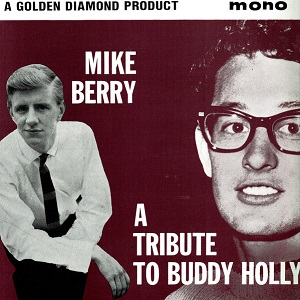
"Tribute to Buddy Holly" is a song written by Geoff Goddard, first recorded by Mike Berry and the Outlaws as a single, which was released in September 1961 on His Master's Voice records. His first chart success, it reached number 24 on the UK Singles Chart in November 1961. The song was banned by the BBC for being too "morbid", regarding the death of 1950s rock and roll singer Buddy Holly, who died in a plane crash on 3 February 1959.
"Bald Headed Woman" is a traditional blues song, covered by British rock band the Kinks on their eponymous debut album in 1964. Another British rock band, the Who, recorded it in 1964 as the B-side of their first top-ten single "I Can't Explain". Outside of traditional African American blues and folk artists such as Lightnin' Hopkins and Odetta, the song had been previously covered by other pop artists of the time, including Harry Belafonte on the 1960 album Swing Dat Hammer. It became a number one hit on Kvällstoppen for Swedish rock group Hep Stars in 1965.

"Sunny Girl" is a song written by Benny Andersson, which was recorded and released as the Swedish rock group Hep Stars' tenth single in March 1966. Their second original song after "No Response", it was the song which made Andersson believe in himself as a songwriter, with support from their manager Åke Gerhard. As a result, almost all singles by the Hep Stars following "Sunny Girl" are original compositions.

Åke Gerhard was a Swedish songwriter. His songs won the title for the first three years of Sweden's Melodifestival: In 1958 "Lilla stjärna" Little star sung by Alice Babs, in 1959 "Augustin" sung by Siw Malmkvist with lyrics by Harry Sandin and in 1960 "Alla andra får varann" Everyone else gets each other with lyrics by Ulf Kjellqvist.
"Farmer John" is a song written by Don "Sugarcane" Harris and Dewey Terry, and first recorded by the two as the American R&B duo Don and Dewey, in 1959. Although the original version of the composition did not receive much attention, it was reinvigorated by the garage rock band the Premiers, whose raving remake of the song was released in 1964. The song's raw and partying atmosphere was immensely popular, reaching number 19 on the Billboard Hot 100. Following the group's national success, several additional interpretations of "Farmer John" were released, making the tune a classic of garage rock.

Hep Stars on Stage is the first live album and second overall release by Swedish rock band Hep Stars. Released in November 1965 on Olga Records, the album is composed of recordings made on 7 and 8 August 1965 at two separate Folkparks in Trollhättan and Västerås, Sweden. Hep Stars on Stage, although not the first live album by a Swedish artist, was the first live recording of a Swedish rock group released.

"No Response" is a song written by Benny Andersson, first recorded by Swedish rock group Hep Stars and released as a single in September 1965. The song was written in response to criticism drawn from other Swedish beat groups, including Shanes and Tages for their inability to write own material.
"So Mystifying" is a song written by English musician Ray Davies, first recorded by his band the Kinks for their 1964 debut album Kinks. It appears as the second track on side one, following "Beautiful Delilah", and is the first track on the album on which Ray Davies performs the lead vocals. The best known version of the song was recorded by Swedish rock group Hep Stars, whose version of the song reached the top-five on both Kvällstoppen and Tio I Topp in 1965.
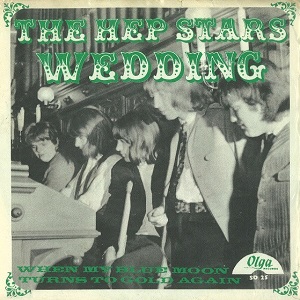
"Wedding" is a song written by Swedish musicians Benny Andersson and Svenne Hedlund, first recorded as the eleventh single by their group the Hep Stars in May 1966. "Wedding" was the second single in which the Hep Stars ventured into baroque pop, something that they'd done on their previous single "Sunny Girl" in March 1966.
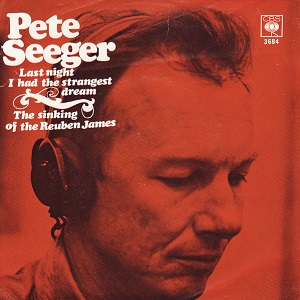
"Last Night I Had the Strangest Dream" is a song written by American folk singer-songwriter Ed McCurdy in 1950. Due to McCurdy's connection with fellow musicians, it was common in repertoires within the folk music community. The song had its first album release when Pete Seeger recorded it as "Strangest Dream" for his 1956 album Love Songs For Friends & Foes. Seeger would later re-visit the song for his 1967 album Waist Deep in the Big Muddy and other Love Songs. The strong anti-war theme of the song led it to be recorded by multiple other artists, including The Weavers (1960), Joan Baez (1962), The Kingston Trio (1963), Simon & Garfunkel (1964), and Johnny Cash who released two versions of the song during the 2000s.

"Consolation" is a song written by Swedish keyboardist Benny Andersson, first recorded as the Hep Stars thirteenth single in October 1966. The single largely left the baroque pop style sound which had dominated both their previous singles "Sunny Girl" and "Wedding", but continues the soft rock style of "I Natt Jag Drömde" and also ventures into the territory of psychedelic rock, a genre that would become prevalent the following year.
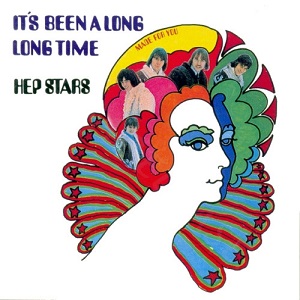
It's Been a Long Long Time is the fourth studio album by Swedish band the Hep Stars, released by Cupol Records in February 1968. Intended to be their international breakthrough, it was recorded in London with session musicians, with the only members of the Hep Stars to appear on the album being lead singer Svenne Hedlund, keyboardist Benny Andersson and tour manager Lennart Fernholm.

"Don't Turn Your Back" is a song written by bass guitarist Göran Lagerberg and guitarist Anders Töpel, first recorded by their band Tages in 1965. Produced by the Violents Rune Wallebom, the song would be featured as the lead track from their debut EP Tages released three weeks later

"I Should Be Glad" is a song by the Swedish rock band Tages, written by bassist Göran Lagerberg and rhythm guitarist Danne Larsson in 1964. Following bad press for their debut single "Sleep Little Girl", the group quickly recorded a follow-up which critics would consider good.














